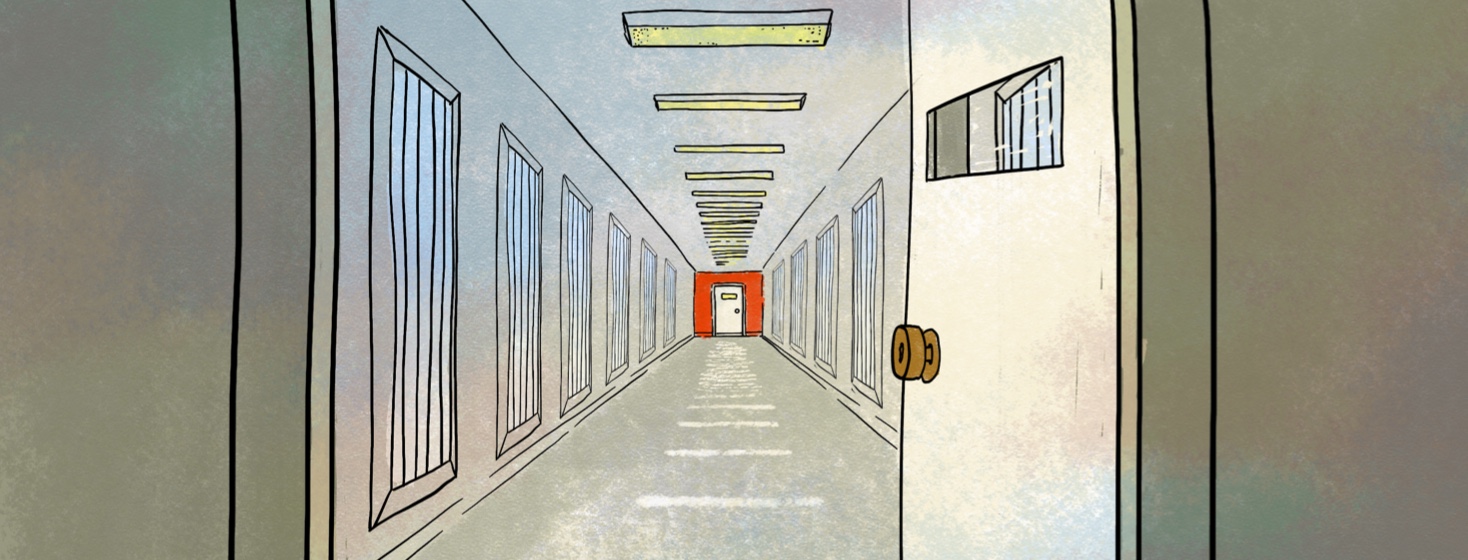World Behind Locked Doors: My First Hospitalization
I awoke as the sun was rising, groggy and confused. In the next moment, I recalled what I had done just hours ago. I'd swallowed an entire bottle of pills. A flash of anger, then waves of disappointment shook my soul. I was still alive. I didn't know what to do. I lay still.
Suicidal and needing help
Resigned that I was going to live, I got dressed and took the F train to the day program. At lunch, one of the other girls noticed I was lagging behind everyone else. She asked if I was okay. Hesitating, I disclosed what I'd done.
Karen ran back to the program, dragging me with her. She flagged down one of the social workers, telling her what had happened. This social worker hurried me into a cab directing the driver up Third Avenue to the nearest hospital.
Being admitted – whether I wanted to or not
I lay on a stretcher in an uptown Manhattan hospital.The doctor thrust a cup of activated charcoal at me. "Drink this," he barked. "It's too late to pump your stomach." Obediently, I drank. I closed my eyes for I don't know how long and the next time I opened them, my parents were staring at me from the foot of the gurney.
They'd divorced when I was a senior in college, and they hadn't been in the same room since. The divorce was not acrimonious, they simply had no need to see each other. My father lacked expression, as was typical. My mother appeared terrified. She was unsuccessful in her attempts to hold back tears.
After a couple of hours, I swung my legs over the side of the gurney and announced I was leaving with my parents. The doctor told me if I tried to leave, I'd be involuntarily committed, so it was in my best interest to admit myself.
My first inpatient hospitalization
It was on that inpatient floor, high above street level, that I passed the time by pressing my face against the window grate and counting the yellow cabs motoring down Lexington Avenue. During each rush hour, I lost count as the cabs morphed into an amorphous blob of yellow jellyfish shimmying down the avenue. It was impossible to count them separately.
I grew even more depressed on that locked unit. I made one friend, a girl who was also on the unit for a suicide attempt. We commiserated in our misery and mourned the lives we’d left behind. Each hour passed more slowly than the previous one. There was a lot of unscheduled time.
Finally sharing the depths of my depression
I thought a lot about what I'd done. I had two failed suicide attempts behind me. After a couple of weeks on the unit, I decided to tell the psychiatrist about my secret first attempt. I'd never told anyone.
They were trying new medications, raising the doses and nothing was working. My depression was proving to be intractable. I was terrified I would leave, and everything would be the same. I wanted something to be different, I wanted my life to be better. I didn't want to constantly wish I was dead.
I hated myself
In my next meeting with the psychiatrist, I laid myself bare. I told him about the suicide attempt while I was seeing my therapist Naomi, I told him about the elaborate ritual I'd developed around cutting.
What I found the most difficult to talk about was the voice that had haunted me prior to this past overdose, taunting me and commanding me to kill myself. He peppered me with questions, not unkindly, wanting to know more. His questioning went far beyond the suicide attempts, the cutting, and the voice. He wanted to know about how I grew up, how I felt about myself — I told him I loathed myself, and how I felt inside. "A jumbled mess of a piece of shit."
An additional diagnosis while hospitalized
Another 2 weeks went by, and the social worker talked to me about having a family meeting. A team of intimidating, white-coated psychiatrists were present, as well as my social worker. They told us that in addition to the anorexia and major depressive disorder, they diagnosed me with something called borderline personality disorder (BPD). They said BPD was rarely diagnosed in isolation and that it was commonly diagnosed alongside major depression.
The plan was to transfer me to a private psychiatric hospital in Westchester, New York. that housed a long-term unit for individuals diagnosed with BPD. They believed I was still significantly depressed and remained a danger to myself. It took a while to realize I wasn't going home. It was hard to believe the depression could get worse, but the black abyss now seemed bottomless, and I was falling fast.
Awaiting a bed on a long-term unit
My family and I had never heard of this diagnosis and had to take the doctor's word. Much later, my mother revealed the psychiatrist told her the prognosis was poor and not to hope for much. Whatever semblance of hope I'd managed to gather while on the unit, I lost in an instant.
While I was waiting for a bed to be available on the long-term unit (how long was long-term, anyway?) I became suicidal again. I didn't tell them. It wasn't as if I could act on my thoughts.
All at once new, trembling, how he was caught up and entangled in the spreading tendrils of inner event already twined into patterns, into strangling undergrowth... –Rainer Maria Rilke, The Third Elegy
